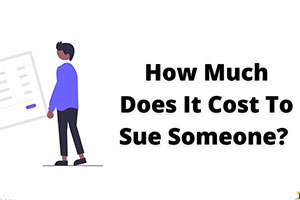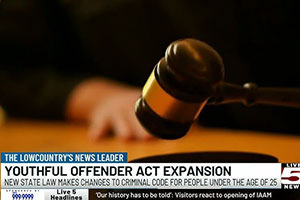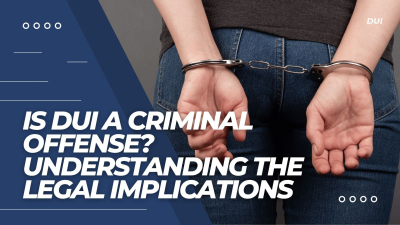What happens at an Arraignment Hearing for a Felony?
Criminal Law | by
An arraignment hearing is a critical initial step in the criminal process for a defendant charged with a felony. Under U.S. criminal procedure law, an arraignment serves as the first occasion during which a defendant appears before a court to hear the charges formally presented against them and to enter a plea. As articulated in Federal Rule of Criminal Procedure 10, an arraignment must include reading the charge to the defendant or stating the substance of the charge and calling on the defendant to plead thereto.
This hearing is fundamental not only for the formal presentation of charges but also for ensuring that the defendant’s constitutional rights are upheld from the outset of the criminal proceedings. The rights to be informed of the nature and cause of the accusation, to a public trial, to an impartial jury, and to be presumed innocent until proven guilty are enshrined in the Sixth Amendment to the United States Constitution.
The Arraignment Process Explained
1. Reading of the Charges: At the arraignment, the judge will read or summarize the charges against the defendant. This is a critical component of the process, ensuring that the defendant understands the nature of the accusations against them, which is a right guaranteed under the Sixth Amendment.
2. Entry of Plea: The defendant is then asked to enter a plea. The available pleas typically include “guilty,” “not guilty,” or “no contest” (nolo contendere). A plea of no contest means that the defendant does not contest the charge, though it is not an admission of guilt and cannot be used against the defendant in a civil suit arising from the same act.
3. Determination of Counsel: If the defendant does not have legal representation, the court will address this issue. Under the Sixth Amendment, defendants have the right to be represented by counsel, and if they cannot afford one, the court is required to appoint an attorney. This is confirmed by the Supreme Court’s ruling in Gideon v. Wainwright, 372 U.S. 335 (1963), which holds that state courts are required to provide counsel in criminal cases for defendants unable to afford their own attorneys.
4. Bail Consideration: Following the entry of a plea, the court may address the issue of bail. This step involves determining whether the defendant should be released while awaiting trial and under what conditions. The Eighth Amendment provides guidance on excessive bail, stating that it should not be required, thereby ensuring that the bail set is commensurate with the alleged offense and the defendant’s circumstances.
5. Scheduling Future Proceedings: Finally, the court will schedule future proceedings, which may include pretrial conferences, motion hearings, and the trial date. This scheduling is crucial for both court management and for providing the defendant and their counsel adequate time to prepare a defense.
The arraignment process is pivotal as it marks the commencement of formal legal proceedings and ensures that the defendant’s procedural rights are respected throughout the judicial process. This formal and procedural adherence to constitutional guarantees not only upholds the integrity of the criminal justice system but also safeguards the fundamental rights of individuals accused of crimes.
Legal Representation at Arraignment
At the arraignment, the issue of legal representation is paramount, especially for defendants facing serious charges. Under the Sixth Amendment of the U.S. Constitution, every defendant has the right to be represented by counsel in all criminal prosecutions. This right is so fundamental that the Supreme Court in Gideon v. Wainwright, 372 U.S. 335 (1963), mandated state courts to provide counsel to defendants who cannot afford one in all criminal cases. This ensures that the rights of the accused are adequately protected throughout the legal proceedings.
During the arraignment, if the defendant appears without counsel, the court must inquire whether the defendant wishes to retain their own lawyer or needs the court to appoint one. Defendants who wish to secure their own counsel but have not yet done so may request a continuance to hire an attorney. If the defendant is indigent—unable to afford private counsel—the court will take steps to appoint a public defender or another court-appointed attorney. The determination of indigence typically involves an assessment of the defendant’s financial status, often requiring the completion of financial disclosure forms.
Understanding Your Rights at Arraignment
During the arraignment, the defendant’s rights under the Constitution are explicitly addressed and protected. These rights include:
- Right to Be Informed of the Charges: The Sixth Amendment ensures that the defendant must be clearly informed of the nature and cause of the accusations against them. This is typically fulfilled through the formal reading of the charges during the arraignment.
- Right to a Public Trial and an Impartial Jury: These rights ensure that the defendant’s trial is conducted openly and fairly, with a jury of peers rendering a verdict based on the evidence presented.
- Right Against Self-Incrimination: Protected under the Fifth Amendment, this right allows defendants to refrain from testifying against themselves during the proceedings.
- Right to Confront Witnesses: Also under the Sixth Amendment, this right allows defendants to cross-examine witnesses who testify against them, providing a chance to challenge the evidence presented by the prosecution.
The judge at the arraignment ensures that the defendant understands these rights before proceeding further in the judicial process.
Entering Your Plea
At the conclusion of the arraignment, the defendant is called upon to enter a plea to the charges. The pleas available are typically “guilty,” “not guilty,” or “no contest.”
- Guilty: The defendant admits to the offense and accepts the corresponding legal consequences. This plea often leads to sentencing without a trial, although the court may inquire further to ensure that the plea is made voluntarily and with an understanding of the ramifications.
- Not Guilty: The defendant denies the charges, leading to the scheduling of a trial where the prosecution must prove the defendant’s guilt beyond a reasonable doubt.
- No Contest (Nolo Contendere): This plea indicates that the defendant does not contest the charges but is not an admission of guilt. It is treated similarly to a guilty plea in terms of sentencing but cannot be used as evidence of liability in civil proceedings arising from the same act.
The choice of plea can significantly impact the course of the criminal proceedings, and defendants are advised to consult with their legal counsel before making this decision. The court will ensure that any plea is entered voluntarily and with a full understanding of its implications, in line with constitutional guarantees and the principles of due process.
Decisions on Bail and Pretrial Release
In the context of arraignment, decisions regarding bail and pretrial release are critical and directly impact the defendant’s liberty during the pretrial period. As guided by the Eighth Amendment, which prohibits excessive bail, the court assesses whether to release the defendant and under what conditions. The decision is influenced by factors such as the severity of the alleged offense, the defendant’s ties to the community, prior criminal record, and the risk of flight.
Federal Rule of Criminal Procedure 46 details the criteria and procedures for setting bail. Courts generally have the discretion to release defendants on their own recognizance, especially if they are not deemed a flight risk or a danger to the community. Alternatively, the court may impose various forms of bail or other conditions, such as electronic monitoring or travel restrictions.
For defendants who cannot afford the set bail, the Bail Reform Act of 1984 provides a mechanism for a detention hearing, a further judicial review where the necessity of bail can be contested and alternatives to detention can be considered. This ensures that pretrial detention is not solely a punishment for the economically disadvantaged.
What Happens Next? Scheduling Future Court Dates
Following the arraignment and the decisions on bail and plea, the court schedules subsequent proceedings, which may include:
- Preliminary Hearing: Applicable in felony cases, this hearing determines whether there is enough evidence to proceed to trial. The preliminary hearing must be scheduled within a reasonable time from the arraignment to comply with the Sixth Amendment right to a speedy trial.
- Pretrial Motions: Before the trial, several motions may be filed by both defense and prosecution. These motions can challenge the admissibility of evidence, the legality of a detention or arrest, or other foundational aspects of the prosecution’s case.
- Trial Date: If the case proceeds to trial, a date is set in accordance with the court’s schedule, the complexity of the case, and in consideration of the defendant’s right to a speedy trial.
- Status Conferences: Periodic status conferences may be scheduled to ensure that the case is progressing adequately and to address any administrative or procedural concerns that may arise.
- Settlement Conferences: In some jurisdictions, cases may go through a settlement conference where the judge attempts to facilitate a plea bargain or other settlement between the parties.
The scheduling of these events is carefully managed to balance the court’s calendar, the availability of all parties involved, and the legal rights of the defendant, including the right to adequate time for preparing a defense.
References
- Federal Rules of Criminal Procedure, Rule 10 and 46 – These rules govern the procedures at arraignment and the criteria for bail decisions.
- Gideon v. Wainwright, 372 U.S. 335 (1963) – This landmark Supreme Court decision ensures the right to counsel for all defendants facing serious criminal charges.
- Bail Reform Act of 1984 – Provides the statutory framework for pretrial release and detention decisions.
- Eighth Amendment to the United States Constitution – Prohibits excessive bail and ensures fair treatment before trial.










